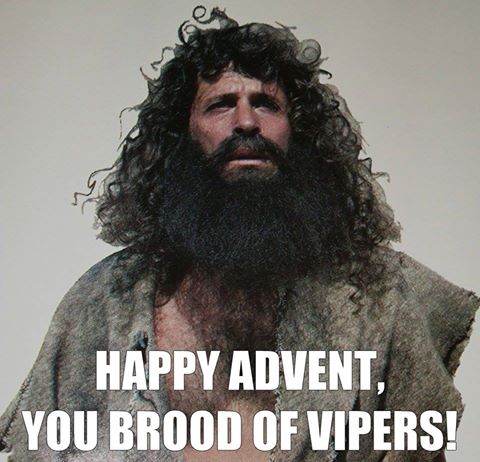 “Teacher, which commandment in the law is the greatest?” He said to him, “’You shall love the Lord your God with all your heart, and with all your soul, and with all your mind.’ This is the greatest and first commandment. And a second is like it: ‘You shall love your neighbor as yourself.’ On these two commandments hang all the law and the prophets.”
“Teacher, which commandment in the law is the greatest?” He said to him, “’You shall love the Lord your God with all your heart, and with all your soul, and with all your mind.’ This is the greatest and first commandment. And a second is like it: ‘You shall love your neighbor as yourself.’ On these two commandments hang all the law and the prophets.”
I make lists. I suspect most people do, at least to some extent. Grocery lists, list of food and recipes for a special meal, daily “to-do” lists, and my “big-projects-for-this-year” list are my favorites. Lists keep us on track, help us focus on the things that are most important in the busy-ness of our lives. They serve to filter out the noise, the distractions; you know, all the outside influences, special interests, gadgets, devices that seek out and demand our attention. Lists help us order how we spend our time and energy. They help us organize our thinking and they help us keep our priorities in focus.
An article on time management entitled “The Unimportance of Practically Everything” (Greg McKeown, May 29, 2012, Harvard Business Review) recently caught my attention. The title is a rephrasing of a quote from leadership authority, John Maxwell: “You can’t overestimate the unimportance of practically everything”. The article describes an intelligent, driven executive who was constantly distracted by having multiple conversations going at any given time on Twitter, Gmail, Facebook and other forms of social media. While these activities may have served some useful purpose, they kept the executive from getting to the most important and rewarding parts of his job. Ultimately the cumulative effect of the distractions had a negative impact on his quality of life. The article goes on to illustrate the relationships between activity and reward and the importance of distinguishing the “trivial many” from the “vital few”. More than just providing background and explanation, the author also gave a useful “First, Do This” course of action.
Make a simple action list:
1) write down your top six priorities
2) cross off the bottom five
3) put your top priority in a highly visible place
4) schedule time to work on your priority every day
5) every time something calls your attention away from your priority, make note of that distraction.
As I read Greg McKeon’s review, I couldn’t help but wonder if, in some way, he was writing a case study of Matthew 22, vs. 36-40. If you read chapter 22 you see that the Sadducees and Pharisees are trying to entangle Jesus, distract him, trip him up with their questioning. But you can almost hear in the tone of his reply, Jesus telling them “Stop focusing on the trivial! You can’t overestimate the unimportance of practically everything. I’m trying to tell you, here is what is important…..”. Eugene Peterson, in The Message, paraphrases verses 36-40 this way:
“Teacher, which command in God’s Law is the most important?” Jesus said, “‘Love the Lord your God with all your passion and prayer and intelligence.’ This is the most important, the first on any list. But there is a second to set alongside it: ‘Love others as well as you love yourself.’ These two commands are pegs; everything in God’s Law and the Prophets hangs from them.”
In other words, distinguish the “trivial many” from the “vital few” and focus your attention on the vital few.
The Christmas season is prime time for making lists. I think most of us are conditioned from an early age to “make your wish list for Santa” and as adults we often rely on our lists of gifts to give, events to attend, Christmas cards to send, and other tasks or activities that will help to ensure that our most important seasonal traditions aren’t overlooked. This Advent Season, as you prepare for Christ’s birth, consider how you can distinguish the trivial, the distracters of the season from what is vital, the priorities. Perhaps, to start, make a simple action list where “You shall love the Lord your God with all your heart, and with all your soul, and with all your mind” and “You shall love your neighbor as yourself” are at the top then only include items on that list if they, in some way, reflect, can hang from these priorities.
Written by Ken Loud
What am I passionate about at Heritage?
“I’m passionate about our Connections Sunday School class and curriculum. Our readings and discussions influence my thoughts and actions throughout the week and help me connect Sunday to the other 6 days. Come join us! You’ll be glad you did.”





